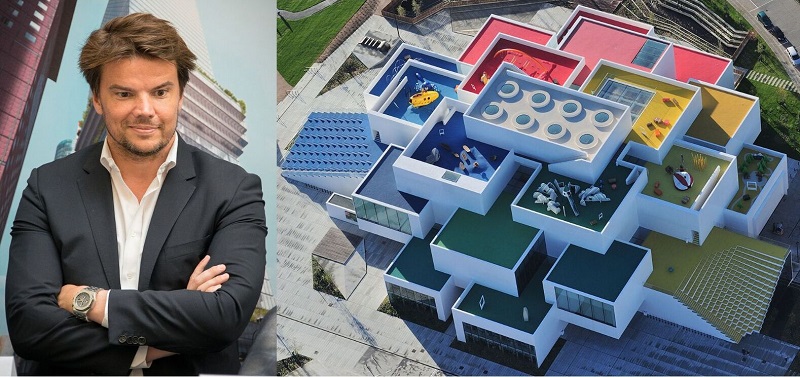ISABEL RUBIO ARROYO | Tungsteno
From a young age, Danish architect Bjarke Ingels dreamed of becoming a cartoonist. Hoping to improve his drawing skills, he enrolled at the Royal School of Architecture in 1993.
“Drawing is my superpower. It was during my childhood: in kindergarten, in high school. I was always the best at drawing,” he said in an interview with the Spanish newspaper El País. At that time, he had no idea that he would become one of the most famous architects on the planet.
From aspiring cartoonist to influential figure
In 2016, when he was 42 years old, Time magazine named him as one of the 100 most influential people in the world. “I do not consider Bjarke Ingels the reincarnation of this or that architect from the past. On the contrary, he is the embodiment of a fully fledged new typology, which responds perfectly to the current zeitgeist," said renowned architect Rem Koolhaas, who worked with Ingels for a time. Koolhaas sees the Danish architect as “completely in tune with the thinkers of Silicon Valley, who want to make the world a better place without the existential hand-wringing that previous generations felt was crucial to earn utopianist credibility.”
Ingels, 49, founded the architecture firm Bjarke Ingels Group, better known by its acronym BIG, in 2006. The firm is behind landmark projects such as the VIA 57 West skyscraper in Manhattan, Google's North Bayshore headquarters in California, and the 8 House housing complex, Superkilen Park and the Amager Resource Center waste-to-energy plant in Copenhagen. BIG also designed LEGO House, a giant structure that appears to be built of LEGO bricks, which began construction in 2014. What all these structures have in common is innovative design.
Ingels is an architect recognised worldwide for his innovative and avant-garde approach. Credit: Architects not Architecture
A giant LEGO house
Ingels is a LEGO enthusiast. Before he and his team set to work on the project to build a giant LEGO house, they spent time playing and building with these iconic bricks. “They soon discovered that the systematic creativity of LEGO play often matched the way they approached an architectural task,” the LEGO Group explains.
The giant structure designed by Ingels, known as LEGO House, is an educational and activity centre in Billund, Denmark. The architect's idea was to create “a cloud of interlocking LEGO bricks… a literal manifestation of the infinite possibilities of the LEGO brick.” The aim was to stack 21 white bricks, one on top of the other, and crown them with a keystone inspired by the classic eight-knob LEGO brick. Underneath, there is a covered public square and interconnected terraces.
LEGO House has a total floor area of almost 12,000 square metres, of which 8,500 m2 are above ground and 3,400 m2 are below ground. The 23-metre-high building is clad in white bricks measuring 18 by 60 centimetres to give the impression that the structure is composed of LEGO bricks. The terraces are brightly coloured and their surfaces are made from materials left over from the production of trainers for several international sports brands, says the company.
LEGO House opened its doors for the first time in 2017. Credit: WIRED UK
Today, Ingels is considered a visionary and creative artist who has transformed the landscape of architecture. He describes himself as someone “capable of changing things.” He is convinced that “architecture can be an art, but actual art must be transformative.” “Steve Jobs said that for every 20 engineers, one is an artist and the rest are engineers. I think that can be applied to architecture, handball and teaching. A teacher who is an artist can change people,” he concludes.
Tungsteno is a journalism laboratory to scan the essence of innovation.
